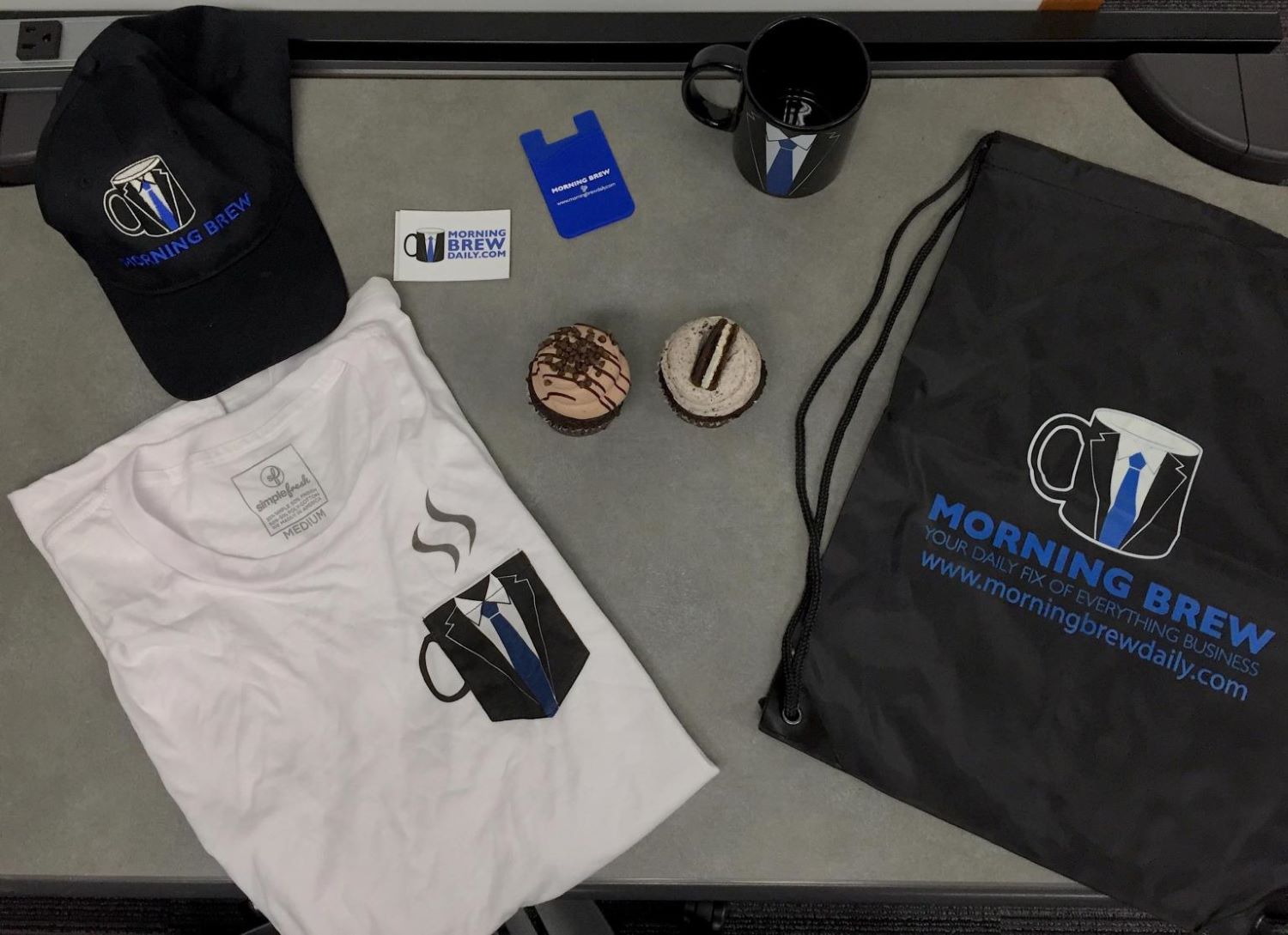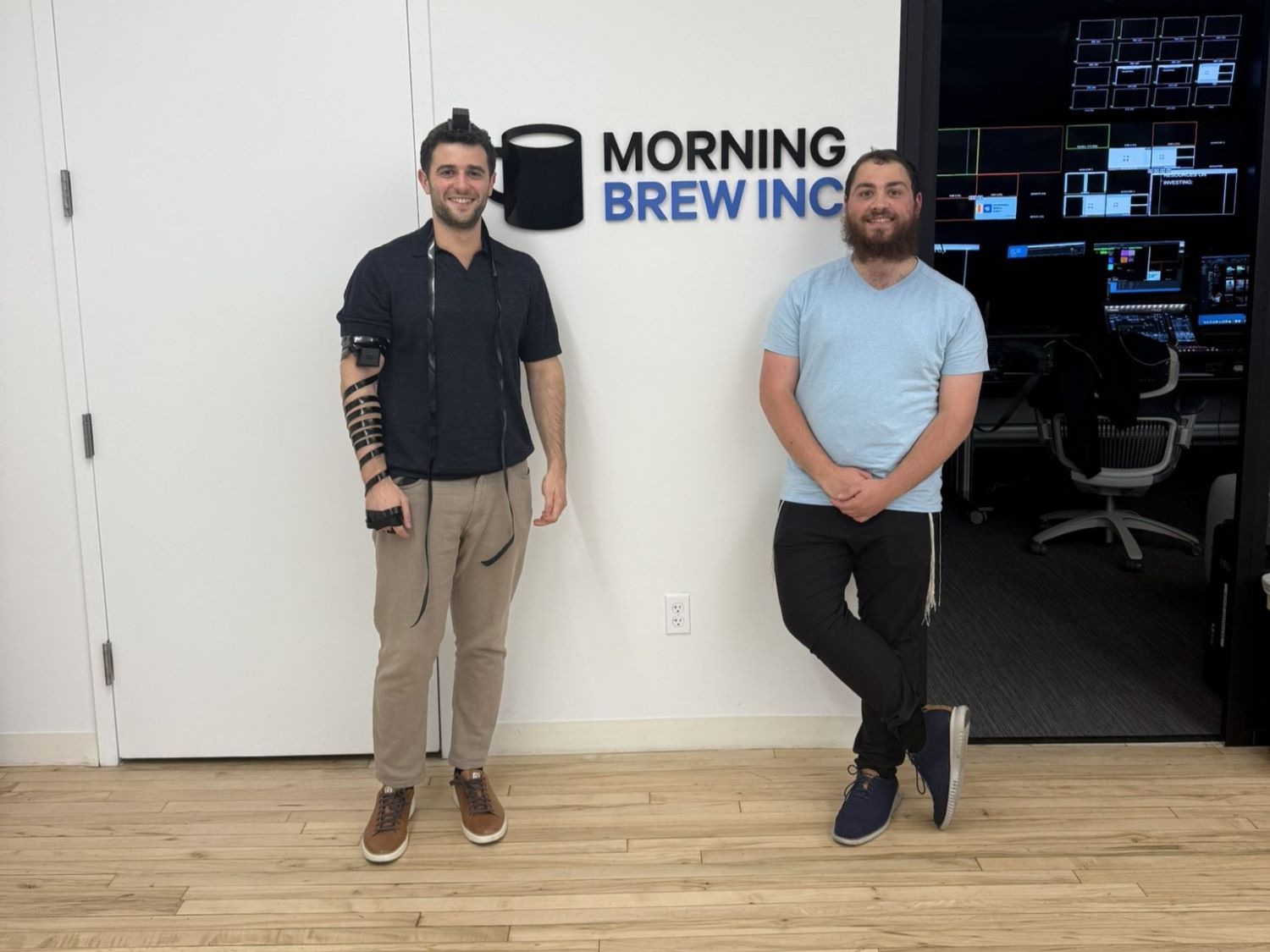The Morning Brew: From a Side Project to a Media Powerhouse
The complexity of business news can be a significant barrier for many people. Financial jargon and economic concepts can be quite daunting if you’re not familiar with them. Terms like “quantitative easing,” “derivatives,” or “market capitalization” can sound like a foreign language to someone who doesn’t have a background in finance or economics.
This complexity can make the news feel inaccessible and unapproachable, leading people to shy away from it altogether.
This is where Morning Brew has made a significant impact. By presenting business news in a more accessible and engaging format, they’ve managed to break down those complex concepts into something more digestible.
The company is widely recognized today, but let’s take a step back in time to explore how it all began.
From a Side Project to a Media Empire
In 2015, Morning Brew began as a side project for co-founders Alex Lieberman and Austin Rief while they were still in college. The idea was simple: create a newsletter that delivered business news in a way that was engaging, digestible, and appealing to a younger audience. At the time, business news was often seen as dry, dense, and difficult to relate to, particularly for people who weren’t deeply entrenched in the corporate world.
The duo set out to change that by making business news more accessible, and their target audience was their fellow students—millennials who wanted to stay informed without feeling overwhelmed. Alex Lieberman reflected on this period, saying, “I need to do something to pass the time and keep myself sharp for my job.”
The first few months were filled with trial and error. They started by writing the newsletter themselves, working late into the night to craft concise, witty summaries of the day’s business headlines. They focused on brevity and tone, aiming for a 5-minute read that didn’t sacrifice important details for the sake of being snappy. The goal was clear: make business news something people actually wanted to read.

Soon, their friends began sharing the newsletter, and the subscribers grew. What started as a small side project at a college campus quickly began to gather traction beyond their immediate circle. Alex Lieberman articulated their mission, stating, “Morning Brew’s goal at the highest level is to empower the modern business leader with engaging and accessible content.”
As their readership expanded, it became clear that Morning Brew wasn’t just resonating with college students—it was reaching a much wider demographic. People from all walks of life, from professionals in finance to CEOs of major corporations, were signing up to read the daily digest. It became evident that there was a larger audience out there hungry for a new approach to business news.
The founders realized that they had stumbled upon something unique: a newsletter that offered valuable business insights while maintaining a fun and accessible tone. Speaking about their growth strategy, Austin Rief mentioned, “We realized early on that word-of-mouth and referrals were going to be key to our success. We focused on creating content that people would want to share.”
Initial Challenge – Struggle to Find Investors
When Alex Lieberman left his job at Morgan Stanley to focus on Morning Brew, he had raised $750,000 from 28 investors, including family and friends, but getting there wasn’t easy. Many doubted the viability of a business newsletter and questioned its long-term potential. After countless pitches, he convinced a handful of believers to support his vision.
With no revenue and mounting pressure, he and his co-founder set a goal to generate $400,000 to keep the business alive. Their first break came through an advisor, who secured a $2,500 advertising deal—small but encouraging.
Soon, Alex realized companies like UVA’s Master’s of Accounting program, which had previously reached out to him on LinkedIn, could also be advertisers. That led to a $2,700 deal and a new strategy: targeting performance marketers who prioritized results over scale.
Their persistence paid off with partnerships from brands like Warby Parker and Allbirds. But to hit their goal, they needed bigger deals. When Discover Card showed interest, it seemed like a breakthrough—but the deal fell through.
Instead of giving up, Alex emailed their CMO for advice, which revived their interest and led to a $100,000 partnership. This success pushed them past their revenue goal and made Morning Brew profitable.
Hard Work Pays Off – Experiencing Rapid Growth
By the end of 2018, Morning Brew had hit the milestone of 1 million subscribers, signaling that the demand for this more approachable form of business journalism was not just a passing trend. The founders were faced with a decision: keep Morning Brew as a profitable, highly engaging newsletter or expand the brand into something bigger. With their audience’s trust and deep engagement in hand, they chose to grow, eventually branching out into additional newsletters and multimedia content.
Reflecting on their journey, Alex Lieberman said, “It’s been an incredible ride, from a simple PDF newsletter to a major media company. Our focus has always been on delivering value to our readers, and that remains our top priority.” The journey from a college side project to a thriving media company was just beginning, and the best was yet to come.

In 2020, Morning Brew sold a majority stake to Axel Springer, which provided additional resources to continue their growth.
Morning Brew expanded its content offerings beyond the daily newsletter in 2021. They launched several new newsletters, including “Retail Brew,” “Marketing Brew,” and “Emerging Tech Brew,” catering to specific industry interests. This diversification helped them reach a broader audience and solidify their presence in the business media landscape.
In 2022, the company focused on enhancing its multimedia content. They introduced podcasts and video series, providing more ways for their audience to consume business news. This year also saw Morning Brew investing in community-building efforts, such as hosting virtual events and webinars, which helped deepen engagement with their readers.
By 2023, Morning Brew continued to innovate by launching “Money Scoop,” a personal finance newsletter aimed at helping readers manage their finances better. They also introduced interactive content, such as quizzes and polls, to make the news more engaging. Their subscriber base grew significantly, reflecting the increasing demand for accessible business news.
Morning Brew celebrated several milestones in 2024, including hitting 5 million subscribers. They continued to expand their content portfolio with new newsletters and multimedia projects. The company also launched the “Golden Mug Awards,” an annual event where readers vote on the best, worst, and most interesting business stories of the year.
What Makes The Morning Brew Stands Out?
In a world saturated with news outlets, The Morning Brew has managed to carve out a unique space by redefining how professionals consume business news. Known for its engaging tone, concise content, and reader-centric approach, the company has grown from a college side project into a multimedia powerhouse. But what exactly sets The Morning Brew apart in a competitive media landscape? Let’s explore the key elements that make it a standout brand in modern business journalism.
Engaging and Relatable Tone
One of Morning Brew’s defining traits is its ability to make business news enjoyable, even for those who don’t typically follow financial or corporate updates.
Unlike traditional outlets that lean on complex jargon and lengthy analyses, Morning Brew employs a conversational and often humorous tone to break down complicated topics. The newsletters are crafted to feel like a casual conversation with a well-informed friend, making the content accessible to a broader audience.
This approach not only draws in younger readers but also appeals to busy professionals who appreciate a concise and engaging way to stay updated. By striking this balance, Morning Brew turns what could be an overwhelming flood of information into something people genuinely look forward to reading every morning.
Targeted, Reader-Centric Content
Morning Brew’s success lies in its deep understanding of its audience. The company prioritizes content that aligns with the interests and needs of its readers, whether they’re students, professionals, or executives.
Each piece of content is designed to save readers time while keeping them informed about the most important developments in business, finance, and culture. By focusing on the preferences of its audience, Morning Brew ensures its content is both relevant and valuable. This reader-first philosophy has helped the brand foster strong loyalty, as subscribers feel that the newsletter was designed with them in mind, not just as a one-size-fits-all product.
Diverse Product Offerings
What began as a single newsletter has blossomed into a multimedia ecosystem. Morning Brew has introduced several niche-focused newsletters, such as Marketing Brew, Retail Brew, and HR Brew, each targeting specific industries with tailored content.

This strategy of going “an inch wide and a mile deep” allows the brand to cater to professionals looking for highly specialized insights. Beyond newsletters, Morning Brew has expanded into podcasts like Morning Brew Daily, events, and social media content, enabling readers to consume information in their preferred format. These diverse offerings ensure that the brand stays relevant and accessible to its growing and varied audience.
Valuable Takeaways for New Entrepreneurs
In the fast-paced world of entrepreneurship, founders often face pivotal moments that shape both their personal and professional lives. From the importance of evolving as a leader to the realization that money doesn’t automatically bring happiness, their journey provides a candid look at the complexities of entrepreneurship. Here are three key takeaways that every entrepreneur can learn from their story.
The Importance of Leadership Transition
One of the critical insights shared by the entrepreneurs was the realization that leadership transitions are essential for the long-term success of a business.
Austin explained, “I think I had always kind of had this perception…that you have to be the CEO forever,” but eventually he recognized that stepping into a chairman role allowed for the company’s continued growth and gave him more time to reflect. As an entrepreneur, knowing when to pass the leadership baton is vital for both personal growth and the company’s evolution.
Transitioning leadership responsibilities can be difficult, but it’s necessary when the company outgrows the initial leader’s skill set. Entrepreneurs should avoid staying in a role out of ego and be willing to embrace change. Austin’s experience reflects how, “Moving from the CEO to the chairman role…was right for everyone,” showing that acknowledging when a new approach is needed can set the business on the right path.
Entrepreneurs should focus on building a capable leadership team that can guide the company forward when the founder’s role naturally shifts. As Alex noted, the move from CEO to a more strategic role gave him “freedom of time” and allowed for a clearer focus on the company’s future direction. Successful leadership requires the ability to evolve, delegate, and trust the right people to take the reins.
Financial Success Doesn’t Guarantee Happiness
Both Alex and Austin touched on the reality that financial success, while life-changing, doesn’t automatically lead to increased happiness.
Alex shared, “I think I am happier…but there are also a lot of things that make me not happy,” highlighting that the complexities of wealth can bring new challenges, like managing risks and reassessing personal motivations. For entrepreneurs, understanding that money alone won’t provide lasting fulfillment is crucial for long-term mental well-being.
This shift in mindset is important when building a business. Austin elaborated, “I realized I had money anxiety…even though it isn’t necessarily rational,” suggesting that financial success does not always eliminate deeper emotional concerns. Entrepreneurs must address internal conflicts and fears, especially once they achieve their financial goals, to avoid burnout or existential crises.
Entrepreneurs should focus on maintaining balance and self-awareness as they progress in their careers. As Alex said, “Money is stepwise,” meaning that incremental increases in wealth lose their excitement over time. This insight serves as a reminder to find purpose and motivation beyond financial goals, and to create a business that brings joy, personal satisfaction, and long-term impact.
Time Freedom Is a Valuable Reward
One of the greatest benefits of entrepreneurial success is the freedom to choose how you spend your time. Both founders expressed gratitude for the control they now have over their schedules.
Alex emphasized, “I can choose what to do with my time,” which allowed him to focus on personal well-being and new ventures. As entrepreneurs scale their businesses, they often find themselves with the flexibility to explore passions and spend more time with loved ones, which is a precious outcome of financial success.

The ability to dictate one’s own schedule provides entrepreneurs with a sense of liberation and accomplishment. Austin also pointed out that, “The freedom of time…is the number one thing,” referring to how stepping away from the daily grind allows for more meaningful personal choices. Entrepreneurs who prioritize time freedom over excessive growth can experience more profound satisfaction in both their business and personal lives.
This sense of autonomy and flexibility is a valuable asset that entrepreneurs should work toward. As Alex reflected, freedom of time allows for “living according to their values,” and this is something that should be cultivated early on. Focusing on building a business that offers not just wealth, but the ability to live life on your terms, can lead to a more balanced and fulfilling entrepreneurial journey.









